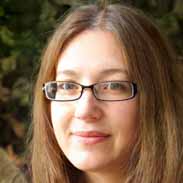Early Modern Europe Flashcards, test questions and answers
Discover flashcards, test exam answers, and assignments to help you learn more about Early Modern Europe and other subjects. Don’t miss the chance to use them for more effective college education. Use our database of questions and answers on Early Modern Europe and get quick solutions for your test.
What is Early Modern Europe?
Early Modern Europe was a period of time stretching from the 15th to the 18th century. This period saw many changes in politics, religion, and culture that have shaped the world we live in today. During this time, Europe experienced an unprecedented growth in its population, economy and power which ultimately led to the formation of nation-states as we know them today. Politically, Early Modern Europe was dominated by absolute monarchs who held strong control over their realms. These monarchs sought to strengthen their power through alliances with other European countries or by waging war against them. This era also saw the emergence of powerful trading empires such as Spain and Portugal which established colonies around the world and spread their influence far beyond Europe’s borders. The Reformation was one of the most significant religious movements of Early Modern Europe which began in Germany in 1517 and eventually spread throughout much of Europe by 1500s. This movement challenged traditional forms of Christianity by introducing new ideas such as salvation by faith alone rather than works and allowed for more personal interpretations of scripture instead of relying on official church doctrine. The Catholic Church responded to this challenge with its own Counter-Reformation movement which aimed to reassert its authority over religious matters while maintaining a degree of religious pluralism within society. Culturally, Early Modern Europe witnessed many major changes including a shift towards humanism which focused on individual autonomy and self-expression rather than group conformity or obedience to authority figures like kings or priests; an increased emphasis on science and knowledge; advances in technology such as printing press; exploration across continents; new forms of art such as baroque music and painting; flourishing craftsmanship; expansion into new markets due to increased trade networks; etc. All these changes are seen even today when comparing contemporary culture from that during this era hundreds years ago. In conclusion , Early Modern European history is full with political , religious , economic , social , cultural developments that shaped our present day world. It is clear that without these events , our lives would look much different than what it does now. Despite some difficulties faced during this period due wars between states or religious tensions among population groups , it is undeniable that early modern european brought great progress for humanity at large .














